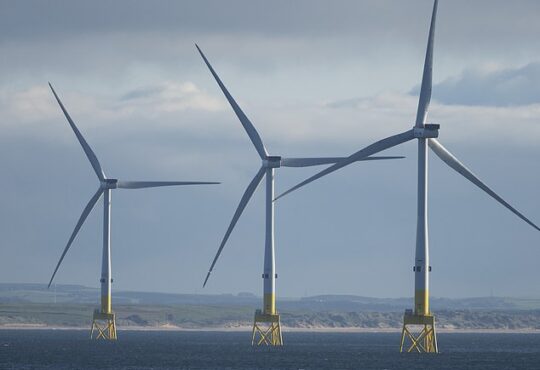
Investors have been pelted by bad news this year, but go global… and take a share of the £347bn dividend haul
Investors have been pelted by bad news this year, with investments of all types and geographies in the doldrums. But there is one group that has been less mired in gloom. Those who invest to achieve an income on their nest eggs are seeing some blue skies, especially those who know the best places to look for it.
Global dividend payouts rose by seven per cent to £347billion in the third quarter of this year, according to the latest Janus Henderson Global Dividend Index. As many as 90 per cent of companies around the world that the investment house monitors increased their dividends – or held them steady.
Investors who want their portfolio to produce an income can choose to put their money into a range of companies that regularly pay out a portion of their revenues in dividends to shareholders.

All around the world: Global dividend payouts rose by seven per cent to £347billion in the third quarter of this year
But an easier way to earn dividend income is to invest in an equity income fund or investment trust. These contain anything from a handful to hundreds of stocks chosen for their potential to pay out an income.
That way, you are not relying on just a few companies, so your risk is more evenly spread.
Why a global approach to income is good
Global equity income funds are overlooked by many investors who choose to focus on the UK stock market.
This is not a terrible mistake; the UK market is good at paying dividends and its 100 biggest stocks are currently offering an average annual income of 4.5 per cent.
Yet, by considering global income funds, the number of possible high-yielding companies to choose from leaps. There are three times more companies with a dividend yield higher than five per cent among global companies than just UK ones, figures from fund manager Vanguard reveal.
he global income sector has seen total returns fall by 0.6 per cent on average since the start of the year. This isn’t earth-shattering, but remember that most markets have taken a hit this year so a modest fall compares favourably. Global funds as a whole have lost nine per cent in value.
Importantly, some of the best-performing global equity income funds have seen close to double-digit growth this year – almost enough to counter the harmful effects of inflation.
Jason Hollands, managing director of investment platform Bestinvest, says: ‘The UK is the standout market when it comes to dividends, so income investors should not ignore the opportunities on their own doorstep.
‘That said, it is wise to embrace diversification when it comes to building and managing an investment portfolio, so investors looking to generate income should cast their net more widely.’
How to choose an overseas income fund
If you have a strong conviction about which parts of the world are likely to produce the best dividend income, you can invest in income funds with a specific geographical focus, such as Europe, Asia or the US.
But opting for a global equity income fund allows you to invest in companies worldwide.
Remember, though, that such funds vary wildly in their investment approach, so you will have to do some research to work out which one is right for you.
What is a good income from a global fund?
When investing in global income funds, the aim should not be to find the ones with the highest yields, but rather those that offer a consistent and sustainable income.
So, look at the dividends paid this year and in past years. If possible, see how the income funds you are looking at have performed in different economic environments – from booms to recessions. This won’t tell you how the fund will perform in the future, but it will give a sense of its investment mettle.
By far the biggest income contributors this year have been oil and energy companies, which have profited from soaring energy prices. But some of the biggest global income funds steer well away from them. This is because they believe the dividends are not sustainable in the long-term as the fortunes of such firms tend to be cyclical.
James Norton, head of financial planners at Vanguard UK & Europe, says investors should avoid ‘yield traps’ – companies that offer a high income, not because they are healthy but because their share price is depressed.
Advertisement






